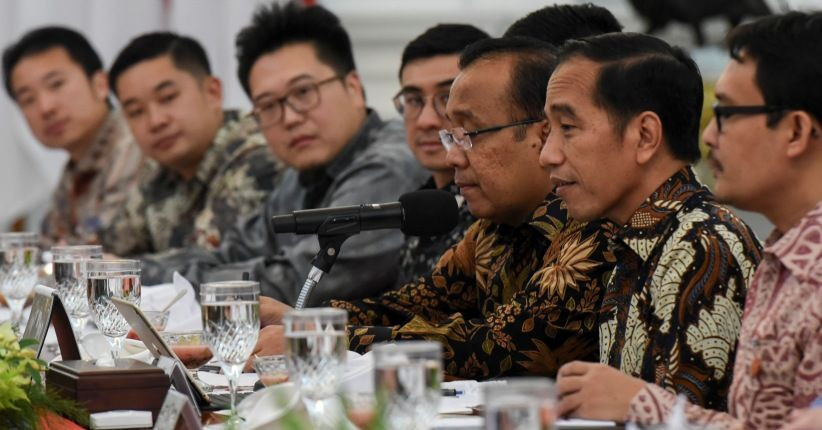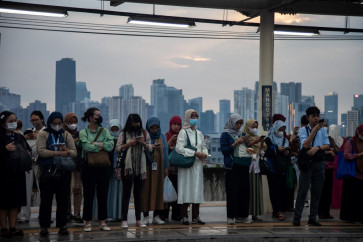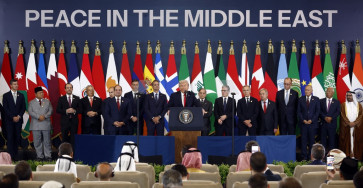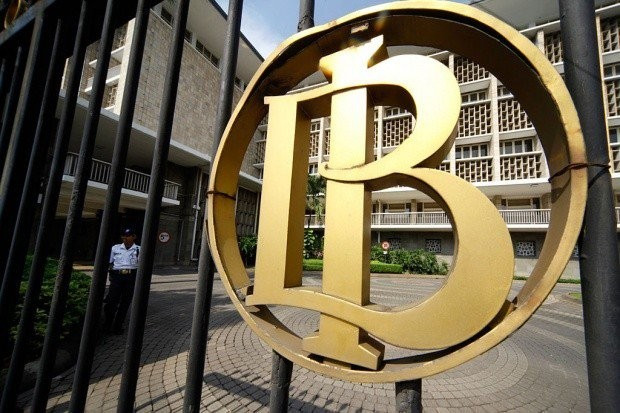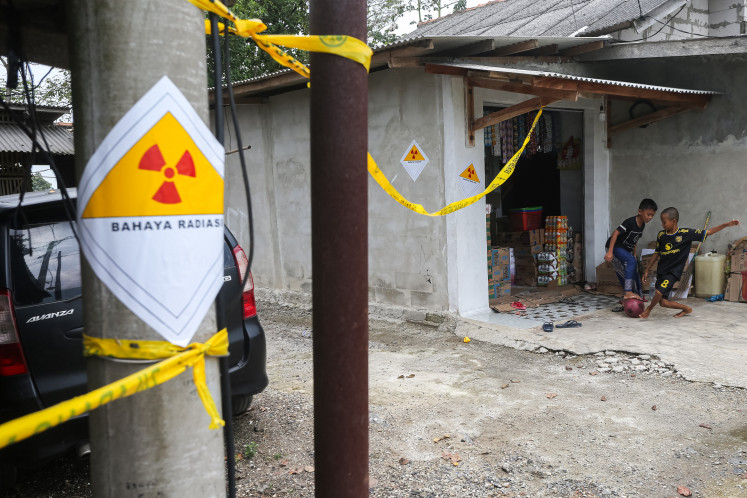Popular Reads
Top Results
Can't find what you're looking for?
View all search resultsPopular Reads
Top Results
Can't find what you're looking for?
View all search resultsFocusing tax audits on high-net-worth individuals
More than 90 percent PIT revenue was derived from workers (withheld by employers), while businesspeople and self-employed professionals who comprise high-net-worth Individuals (HNWIs), contributed less than 10 percent to total PIT revenue.
Change text size
Gift Premium Articles
to Anyone
T
axes will play a more critical role in funding the post-pandemic recovery, as the government has to significantly increase expenditure to cope with the damage caused by the public health and economic crises. The biggest challenge, though, is that tax receipts have tended to decline due to the economic downturn.
As of May, only 35.33 percent of the targeted tax revenue for fiscal year 2020 has been collected. Non-oil and gas income tax and VAT receipts fell by 10.38 percent and 7.95 percent year-on-year. For sustainable and just economic development, Indonesia urgently needs a robust taxation system.
The tax revenue structure also shows a limited role of progressive taxation. Personal income tax (PIT), which has a progressive rate, only comprises less than 10 percent of total tax revenue (average 2005 to 2017), much lower than the Organization for Economic Cooperation and Development (OECD) average (24 percent in 2017). More than 90 percent PIT revenue was derived from workers (withheld by employers), while businesspeople and self-employed professionals who comprise high-net-worth Individuals (HNWIs), contributed less than 10 percent to total PIT revenue.
This situation shows that the current tax situation is asymmetric and how the progressive tax system, such as PIT, has limited capacity to properly tax the HNWIs. Where workers are contributing more to the tax revenue and becoming the backbone of the nation, the wealthy are contributing less.
Moreover, the compliance of entrepreneurs declined last year. The Directorate General of Taxation performance report shows that only 214,449 businesspeople and self-employed professionals (HNWIs) that registered as taxpayers in 2018 are paying taxes in 2019, down by 67.3 percent from 657,716 in the previous year.
Hence, it has become increasingly imperative for the government to intensify tax collection from HNWIs. The idea of collecting more taxes from the wealthy and better-off people was also proposed by the World Bank in its Public Expenditure Review report launch recently. The World Bank also suggested that green and health taxes (such as a sugar tax to support long-term health spending) be collected.
There are at least three ways of intensifying tax collection from the rich. First, stepping up the examination and audit of the HNWIs to check their tax compliance. This can be done because the DGT has been authorized now by Law No. 9/2017 to access the bank accounts of taxpayers. In the international context, the government has engaged in the Automatic Exchange of Information (AEoI) with more than 90 tax jurisdictions around the world.
Furthermore, Indonesia also has adopted the Multilateral Instrument (MLI), which amends 38 of its tax treaties to prevent base erosion and profit shifting (BEPS). These policy tools need to be sharpened so that they can target the HNWIs more effectively.
Second, raise the PIT top rate, which is now only 30 percent for HNWIs. The highest PIT rate is much lower than the OECD average top PIT rate of 43 percent or other developing countries such as India (42.74 percent), Philippines (35 percent) or South Africa (45 percent).
Third, introduce a new form of tax or wealth tax on HNWIs, especially the top 1 percent, whose assets exceed a particular threshold. This wealth tax is one of the tax efforts being discussed among economists and politicians in many countries within the broader effort to fund economic recovery after the pandemic. The OECD defines wealth taxes as recurrent taxes on individual net wealth, including movable and immovable property, net of debt. Wealth tax can be levied at progressive rates that increase with household wealth.
It is also worthy of note that fair taxation and high tax compliance contribute to prevent widening inequality in wealth and income distribution.
Instead of being a permanent policy, experiences in other countries suggests that wealth tax can be executed as a temporary measure. Iceland reintroduced the wealth tax as a temporary emergency measure between 2010 and 2014, after it revoked the previous wealth tax policy in 2006. Spain, which had scrapped its wealth tax in 2008, also revived the net wealth tax in 2011. Germany also implemented a time-limited and progressive net wealth tax which contributed to Germany's post-World War II economic miracle.
Imposing a temporary wealth tax might raise the revenue potential. The "richest list" is the simplest proxy to illustrate the accumulated personal wealth for the top 1 percent in Indonesia. Forbes Indonesia's Richest 2019 shows that the combined wealth of the 50 wealthiest persons that have wealth above US$500 million totaled $134.6 billion (Rp2.01 quadrillion) or more than 73 percent of total government expenditures this year.
If the government imposes a wealth tax of just 2 percent on these HNWIs it could collect additional revenue of Rp 40.38 trillion, a sum more than enough to fund the Family Hope poverty alleviation program in 2020 (Rp 37.4 trillion). This ballpark figure may increase if vigorous registration can net more top HNWIs to be subjected to the wealth tax.
Certainly, such a bold tax effort may face strong political opposition, but a critical situation requires a radically bold policy for the good of the majority of the people.
***
Both writers are analysts at the Fiscal Policy Agency of the Ministry of Finance. The views expressed are their own.

